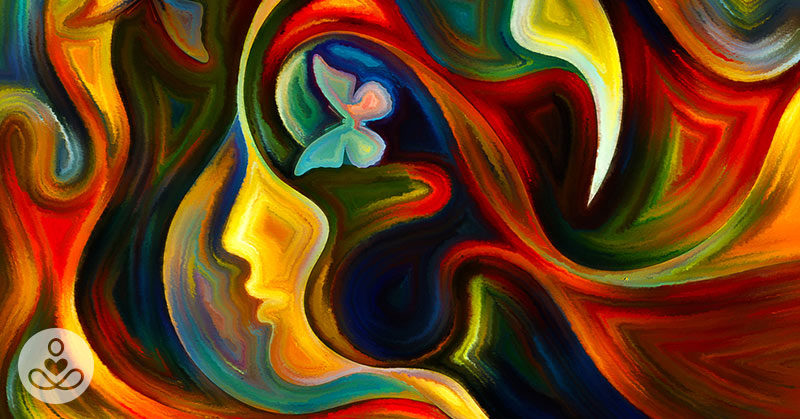Nobody is immune to anxiety, unfortunately. From time to time, we all experience that jittery feeling of overwhelming concern and worry for the future. It can be driven by various factors – genetics, life events, environment, personality, stress, burnout, you name it. However, statistics show that approximately 6.8 million adults in the US suffer from Generalized Anxiety Disorder (GAD), where excessive concern and worry are chronic and uncontrollable, regardless of given circumstances. [1]
Read: “The Brain Needs Animal Fat,” Psychiatrist Says
How to Reduce Anxiety Before Reaching for Pills
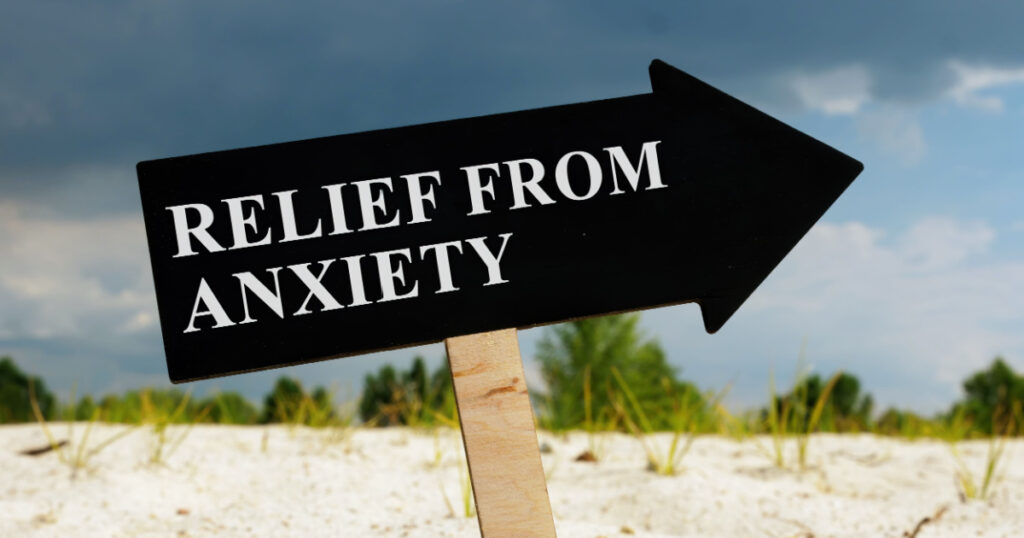
As with all negative emotions, it’s important that we acknowledge the anxiety within ourselves when it appears in even the slightest form. Only then can we help ourselves find a way out of the paralyzing whirlwind of worry? Whether you experience feelings of anxiety sometimes as a result of stressful events or if you’re one of the millions of people suffering from a chronic anxiety disorder, take note of these 5 helpful hacks to help you take charge of the situation and help your brain cope.
1) Mindfulness

Anxiety and the feelings of excessive worry inherently suggest not living in the moment. Mindfulness, on the other hand, is described as “the basic human ability to be fully present, aware of where we are and what we’re doing, and not overly reactive or overwhelmed by what’s going on around us.” [2] Try practicing mindfulness as moment-to-moment awareness – observe your surroundings, pay attention to your breathing, and ground yourself in the reality of the situation. Give meditation a try. It’s one of the best techniques for practicing mindfulness, relaxing, and balancing your thoughts, which makes it a great technique for relieving the symptoms of anxiety. [3] When you feel anxiety coming on, it’s especially helpful to remind yourself of the present moment and gently bring your thoughts back to it.
Ask yourself questions such as:

- Where am I now?
- What am I doing?
- Which thought has led me to feel anxious?
- Is my worry in any way related to the present moment and is there something I can do about it right now?
2) Journaling
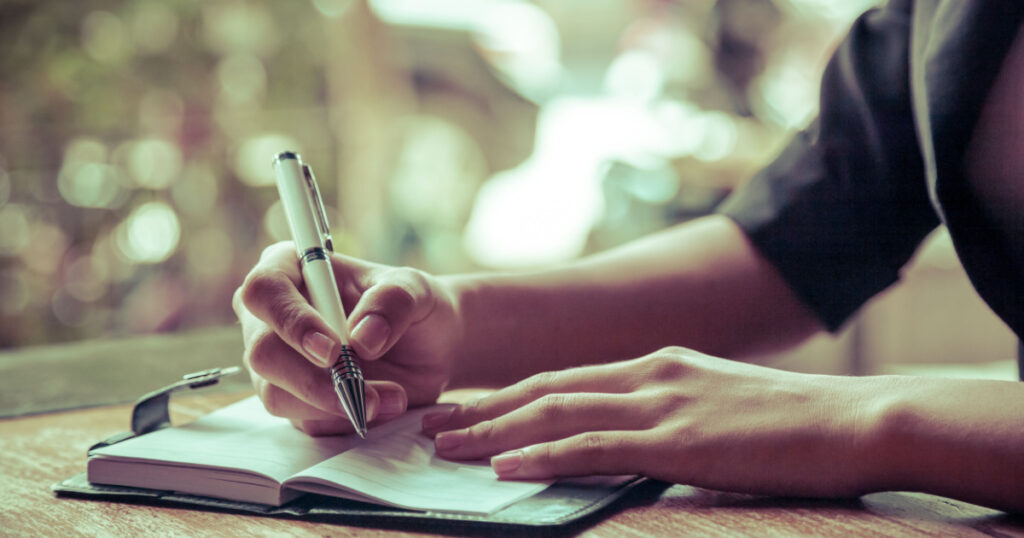
We have a million thoughts running through our minds automatically, and there’s no way to get a grip on them and begin understanding them unless we write them down. Keeping a thought diary is essentially a great technique for practicing mindfulness. Jot down your thoughts freely, be honest, and let it out. With a journal, you can track your progress and pinpoint which kinds of situations cause you the most anxious feelings and why.
Psychologists commonly suggest each page of a “thoughts journal” to be divided into three sections:
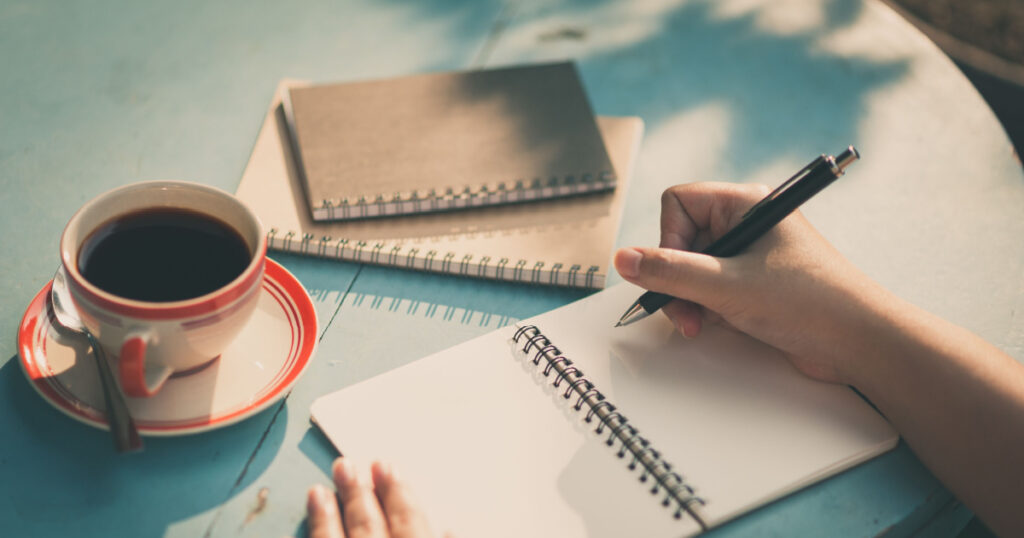
- The situation you anticipate or the situation that’s causing you anxiety
- Your thoughts / What are you telling yourself
- A description or a 1-10 rating of how anxious you feel [4]
3) Supplementation

When it comes to stress-induced anxiety, adaptogenic herbs are most effective. This description of how adaptogens function works as a great visualization: “You can think of them like a thermostat for your body. When your stress “temperature” begins to rise, adaptogens can support your body as it comes back to its normal levels.” [8]
Read: Rare Brain-Eating Amoeba Turned Woman’s Brain Into ‘Mush’ While She Was Still Alive
Here are some ingredients that have proven anxiety-reducing properties that you may find in supplements:
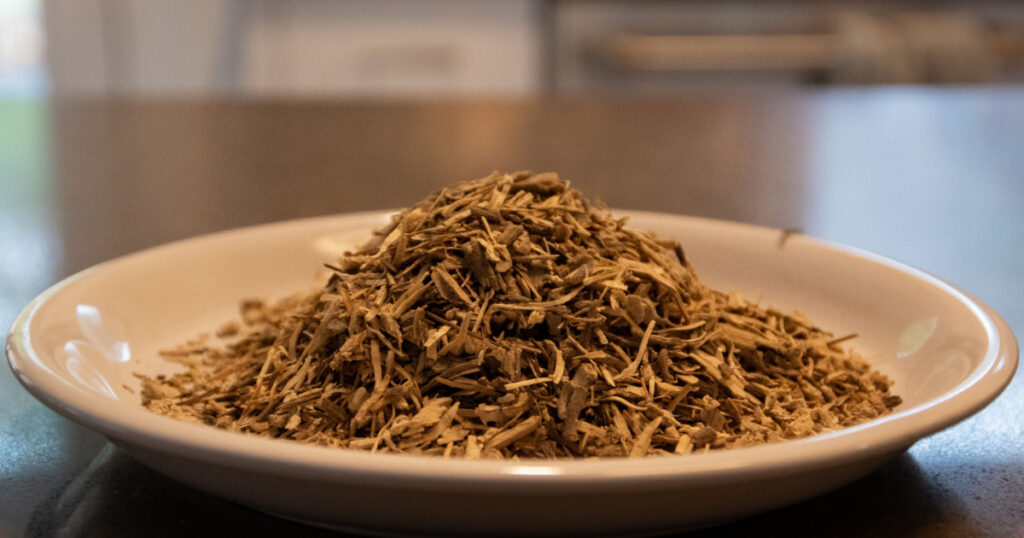
- Studies have shown that the herb kava is reliable and effective in reducing anxiety, “sometimes at a potency similar to pharmaceuticals” [5]
- L-theanine. One of the main active ingredients of green tea, this amino acid has been shown effective in promoting relaxation and reducing anxiety acutely. [6]
- Ashwagandha is one of the most famous adaptogens – natural substances which help the body maintain balance. It has been shown especially effective in reducing anxiety related to chronic stress and helping regulate cortisol levels. [7]
4) Exposure therapy
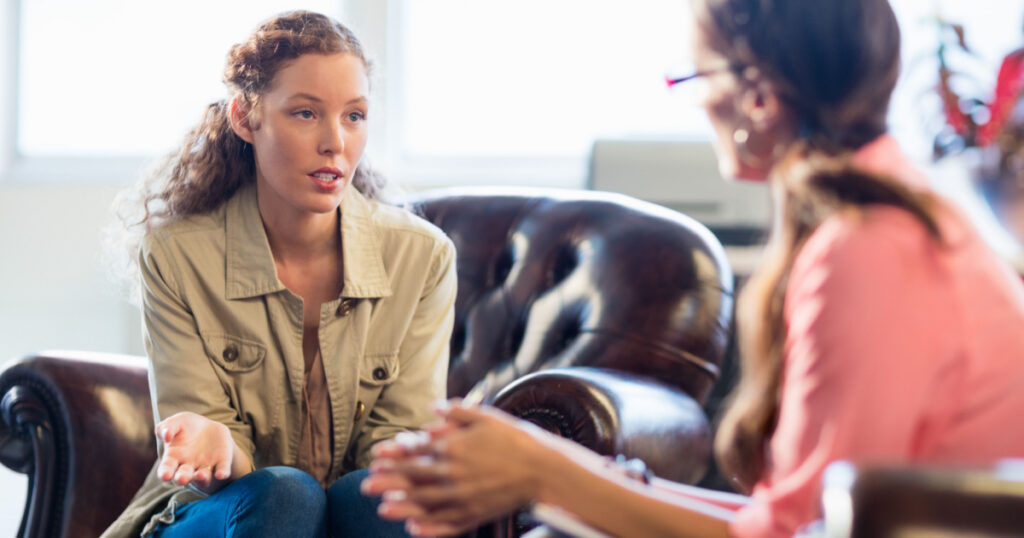
Exposure therapy is a type of psychological treatment that seeks to help people confront their fears. It’s a simple premise that’s widely applied in behavioral therapy and proven to work in many cases – tackle the fear/worry so that you may conquer it. Yes, it sounds like a mess nobody would like to get into voluntarily. But it brings results.
5) Exercise
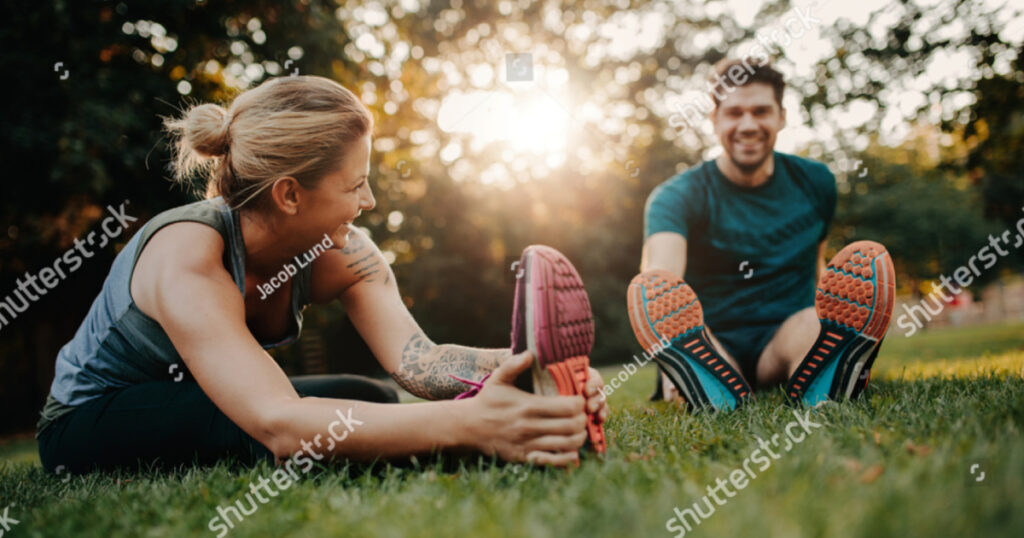
There’s no denying that physical exercise is a great technique for reducing anxiety, and researchers have yet to precisely determine which mechanisms make aerobic exercise so effective. [9] From personal experience, I can say there’s no better way to deal with acute anxiety than with a quick bout of exercise – whether it’s jumping jacks, a quick run, or a few push-ups. It helps get the jitters out, along with the frustration and fear. It’s great for the brain too. Try to incorporate regular exercise into your routine – you might just find that you’re the calmest and happiest when you’re doing cardio.
The Bottom Line

Anxiety needs to be tackled from all angles – and these 5 hacks, combined together, can help you do that. Keep in mind that there’s no single hack to make it all go away – it’s a process, and it requires effort, understanding what your needs are, and being kind to yourself. Lastly, anxiety takes on different forms and presents many levels of severity. It’s not a topic to generalize, and it’s important that we each talk to someone we trust about it so that we can gain more insight. If you experience feelings of anxiety regularly, don’t hesitate to seek help from a professional – that’s where relief starts.
Keep Reading: America’s most widely consumed cooking oil may cause genetic changes in the brain, according to animal studies
